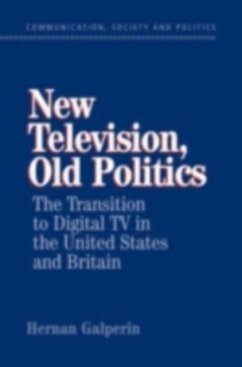This book examines the economic, political, and technological forces that are shaping the future of broadcasting in advanced industrialized nations by comparing the transition from analog to digital TV in the US and Britain. Digital TV involves a major reordering of the broadcast sector that requires governments to rethink governance tools for the digital media era. By looking at how the transition is unfolding in these nations, the book uncovers the political underpinnings of the emerging governance regime for digital communications and explores the implications of the transition for the development of the Information Society in the US and Europe. The findings challenge much conventional wisdom about media deregulation and the globalization of communications. The transition to digital TV has not weakened but rather reinforced government control over broadcasting. Moreover, contrary to what many globalization theories would predict, it has reinforced preexisting differences in the organization of media across nations.
Dieser Download kann aus rechtlichen Gründen nur mit Rechnungsadresse in A, B, BG, CY, CZ, D, DK, EW, E, FIN, F, GR, HR, H, IRL, I, LT, L, LR, M, NL, PL, P, R, S, SLO, SK ausgeliefert werden.


